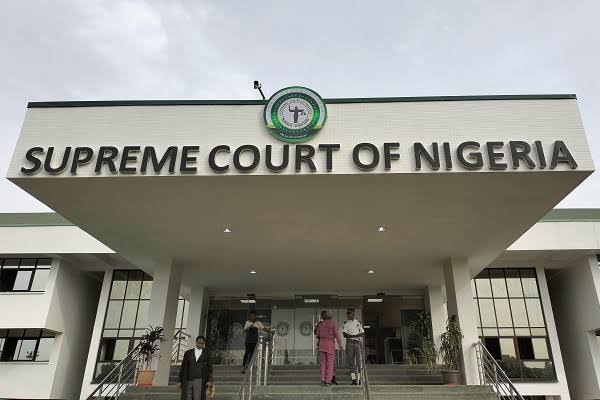The recent verdict of the Supreme Court affirming financial autonomy for the 774 local governments is a welcome development. The seven-member panel of the court unanimously held that the local governments should begin to receive their allocations directly from the Accountant-General of the Federation. Justice Emmanuel Agim, who delivered the lead judgement, ruled that it was illegal and unconstitutional for governors to receive and withhold funds allocated to local government areas in their states.
The apex court also declared caretaker committees of these councils illegal. What this means in effect is that only elected officials can now superintend over the affairs of the local councils. It is heartening that many state governments have welcomed the judgement. At least 13 states have indicated their willingness to conduct local government elections.
Nevertheless, we advise that the State Independent Electoral Commissions (SIECs) should not conduct the elections to avoid unpleasant outcome of the polls. State governors have overbearing influence on the SIECs and can manipulate the outcome of the poll to favour their preferred candidates. Let the SIECs be scrapped and let the Independent National Electoral Commission (INEC) be made to conduct the local government elections.
The Federal Government through the Attorney-General of the Federation and Minister of Justice, Mr. Lateef Fagbemi, had sued the 36 state governors at the Supreme Court in May this year. Among others, it sought the enforcement of full autonomy for the councils. It also prayed the court to stop governors from embarking on unilateral, arbitrary and unlawful dissolution of democratically elected local government officials. While noting the failure of all efforts to make the governors comply with the provisions of the 1999 Constitution by putting in place, a democratically elected local government system, the FG urged the apex court to stop the governors from constituting caretaker committees for the LGs. It is pertinent to note that in most states, elections never took place in the local government areas. In place of democratically elected officers, the governors appointed caretaker committees to oversee the affairs of the councils.
The FG also prayed the court to order that the funds meant for the local governments from the Federation Account should be channelled directly to them rather than paying them into the joint state/local government accounts.
The general acceptance of the Supreme Court verdict by the populace is because of the way the governors use the councils to achieve their ulterior motives. They misappropriate funds meant for the local governments despite the clear delineation of duties between states and local governments as enunciated in the 1976 local government reform. The reform established the structure, functions and financing of councils and was aimed at ensuring the independence of local governments from state governments. Chairmen and councillors of the local governments were supposed to be elected with full monetary allowances.
But state governments failed to adhere to the constitutional provisions on the council autonomy. They took over the control of local government administration, ran joint accounts with the local governments and controlled the council funds paid into the joint account from the Federation Account.
Many stakeholders had condemned this interference by the state governors and called for a change of attitude. The Senate, for instance, frowned upon the situation where some of the governors usually forced these local government chairmen to sign off cheques only to give them meagre amounts as running costs. Former President Muhammadu Buhari tried to abolish the state/local government joint accounts during his tenure, but he couldn’t achieve it. The governors stridently opposed his administration then, saying the FG had no constitutional power to interfere or dictate to the state governments how to use their funds.
Some commentators have argued that in a federal system such as the United States, only two units of government – the centre and the states – are recognised. This school of thought holds that state governments directly control the local councils under them. Incidentally, the Nigerian Constitution recognises three tiers of government in Nigeria – federal, state and local governments. In the third tier, the constitution recognises 774 local government areas. The third tier of government should be given the respect it deserves.
Section 162(6) of the constitution provides that “each state shall maintain a special account to be called ‘State Joint Local Government Account’ into which shall be paid all allocations to the local government from the Federation Account and from the Government of the State,” However, the Supreme Court ruled that the federation can only pay local governments allocations directly to the local governments. The apex court also surmised that since paying them through the states has not worked, justice demands that local governments’ allocations from the Federation Account should henceforth be paid directly to the local governments. We urge local council authorities to utilise the funds allocated to them judiciously.
